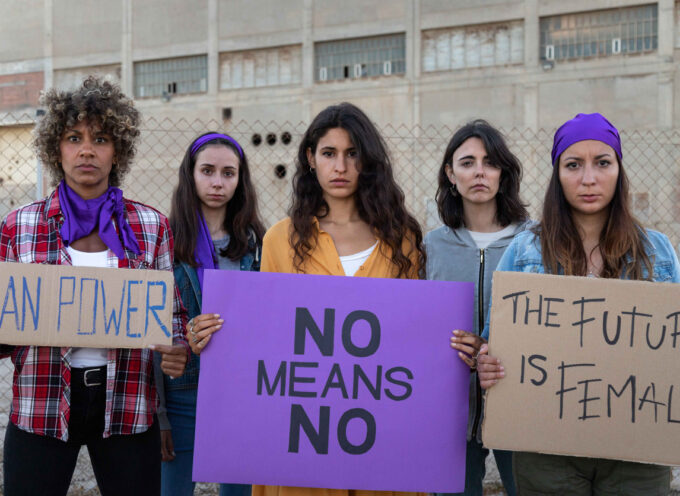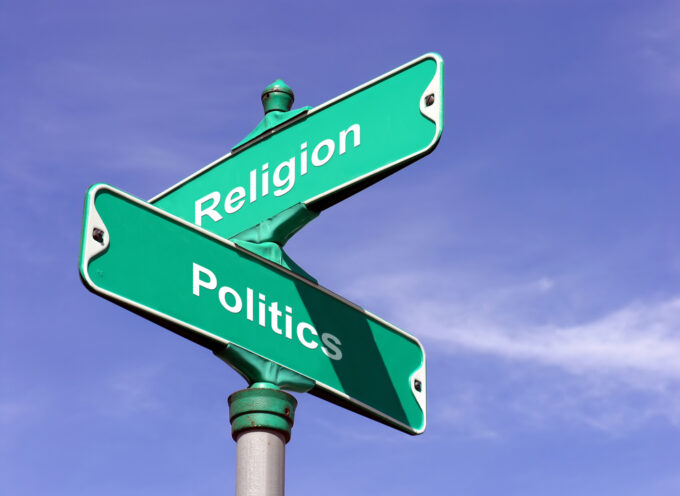The next four years are watershed years for political conservatives, as they grapple with the populist-nationalism that characterizes the Trump administration and many American citizens. The public debate has begun in earnest, with commentators such as David Brooks, Ben Shapiro, and Jonah Goldberg resisting nationalism, and other commentators such as Rich Lowry, Ramesh Ponnuru, and John O’Sullivan being more favorable.
It’s going to take time to discern the real shape of Trump’s nationalism. Economically, to what extent will he oppose libertarian views of the market? In foreign policy, will he remain opposed to interventionism? Will his nationalism embrace all races? Will it support American citizens of other religions? Will he continue to tie his nationalism primarily to economic greatness or will he begin to tether it to democratic ideals and institutions?
In the meantime, American citizens need to undertake a serious critical evaluation of nationalism in its many varieties. Evangelical Christians need to do so doubly, not only as American citizens but as Christian Americans. For that reason, this essay will provide a brief summary of nationalism, identify several varieties of it, survey broad contours of the debate, and conclude with an evangelical evaluation.
What is “nationalism”?
Before defining nationalism, we must define “nation.” In everyday English, we mean the same thing by “nation” that we mean by “country,” “federal government,” or “the state.” Yet, we cannot equate the nation with the state because many nations (for example, the Kurdish nation) do not have a political state-like organization.
How then should we define “nation”? There is no consensus among the experts, causing Bernard Crick to conclude that “no single objective criterion of the national unity has ever been found.” Political theorists have defined it according to any number of factors, including common genealogical origin, language, tradition, and culture; and they even talk about nation’s spirit, national character, common destiny, and sense of fellowship. But for the sake of this essay, we will draw upon political scientist David Koyzis’s definition of a nation as a group of people who claim to be a nation, and who include and exclude by their own criteria.
With nationalism coming in a number of varieties, this essay limits itself to three: ethno-nationalism, civic nationalism (patriotism), and economic nationalism.
Ethno-Nationalism
Ethno-nationalists think that the ethno-nation is the most natural unit of culture. They emphasize certain unique traits of their ethno-nation (the traits may be real or imaginary, or a mixture of real and imaginary). Similarly, they focus on the uniqueness of their national culture and are determined to preserve it by transmitting it to future generations. Because of their convictions about the distinct goodness of their ethno-national culture, they create and maintain a state that will protect the national culture so they can be handed down to future generations. Coming in moderate or extreme varieties, ethno-nationalists will tend to maintain a double standard for justice, privileging the members of the entitled ethnic group over those of other ethnic groups.
Civic Nationalism (or Patriotism)
Civic nationalism is what Americans often refer to as patriotism; civic nationalists give allegiance to the state of which all citizens are members. While ethnic nationalists give preference to their own tribe, civic nationalists promise equal treatment to all citizens, no matter their ethnic heritage, socioeconomic level, or religious beliefs. American civic nationalists tend to focus their loyalty not only on the members of the nation, but also on the “ideas” that make us a nation, ideas such as religious liberty, freedom of speech and press, justice and equality for all, and checks-and-balances on centralized power. Historically, they have often affirmed the Judeo-Christian moral framework that exercised such a profound influence on our founding ideals and documents.
Economic Nationalism
Globalization and its economic ramifications add another dimension to the conversation. In the midst of a global economic recession and large-scale immigration, an economic nationalism has arisen in opposition to globalism, and usually in combination with either ethnic nationalism or civic nationalism. In fact, this impulse toward economic nationalism is so strong that, during the 2016 election cycle, it reoriented the long-standing political divide in our nation from “conservative vs. progressive” to “open country vs. closed country.” Economic nationalism takes a more isolationist position closing the borders, restricting free trade, and intervening in the domestic economy. One such instance was President Trump’s economic nationalism which was featured prominently in his campaign.
How does nationalism relate to American “exceptionalism”?
American nationalisms and American exceptionalism are not the same thing, though they are often confused. An American citizen is a proper exceptionalist when he or she considers the United States’ founding ideals and documents exceptional among historical political ideals and documents. A proper exceptionalist is one who would rather be a citizen of our nation, with its founding ideals, than of another nation with a different set of founding ideals. As such, a proper exceptionalist is a good civic nationalist, or, “patriot.” An improper exceptionalist is one who considers the American people and their leaders to be more naturally virtuous than other people and their leaders or who excludes other people from citizenship because our nation is “specially chosen by God.”
Political analyst Yuval Levin points to Abraham Lincoln as an example of a proper exceptionalist who recognized that our aspirations form “a standard maxim for free society, which should be familiar to all, and revered by all; constantly looked to, constantly labored for, and even though never perfectly attained, constantly approximated, and thereby constantly spreading and deepening its influence, and augmenting the happiness and value of life to all people of all colors everywhere.”
Politically, Levin is arguing that a proper exceptionalism holds patriotism’s feet to the fire by making it accountable to live up to those ideals and standards. His argument seems right; an appropriate form of exceptionalism will form a proper safeguard keeping civic nationalism from turning into ethno-nationalism or something even worse.
Why does nationalism arise?
Nationalist sentiments arise for various reasons. One significant reason it surfaces in the modern West is that the Left and the Right are excessively individualist, while nationalism emphasizes the community. The Left tends to emphasize a person’s right to carve out their own path sexually, while the Right emphasizes a person’s right to do so economically. Regardless, the individual is reduced to a sexual or economic unit, a one-dimensional chooser in a marketplace of sex and money. This sort of individualism leaves citizens longing for community, because people seek and gain their identities in community. In the political realm, this longing will push them toward some type of communal politics; the Left is leaning toward socialism while the Right is leaning toward nationalism. Nationalism can also grow from the soil of economic concern (as a response to recession and immigration) or tribal favoritism (the natural tendency to favor one’s own).
What is the state of “the debate” about nationalism in the West?
A number of books and articles have been written to summarize the complex and multifaceted debate about nationalism that has taken place in the West historically (for two of the most significant books, click here and here). Serving as a summary, this essay must be extremely concise.
The West has spawned many critics of classic nationalism. They argue that its central claims contradict liberal-democratic values, such as individual autonomy (rights to privacy and speech; right to unrestrained creativity of poets and writers who may want to criticize the nation) and benevolent impartiality. They argue that it almost always conflicts with multiculturalism and pluralism, because of scarcity of resources.
The most prominent contemporary critics of nationalism are cosmopolitans (internationalists). Cosmopolitanism is the view that “(a) one’s primary moral obligations are directed to all human beings (regardless of geographical or cultural distance), and (b) political arrangements should faithfully reflect this universal moral obligation (in the form of supra statist arrangements that take precedence over nation-states).”
Most political thinkers, however, opt for a middle place on the nationalist-internationalist spectrum. Charles Taylor winsomely captures this point when he writes that “we have no choice but to be cosmopolitan and patriots.”
Moving away from ethno-nationalism toward civic nationalism, a number of new models have been set forth. These models reject ethnocentrism and focus instead on an overarching national identity that encompasses all citizens, no matter the ethnic heritage or religious belief. The more moderate forms of nationalism tend to be multicultural and civil, encouraging various ethnic, socioeconomic, and religious groups to participate in a common overlapping civic culture, and fostering open communication between those sub-communities.
What is the relationship between nationalism and conservatism?
Conservatives tend to be more nationalist in orientation than liberal progressives. Over the course of the past 50 years, the leadership of the American Left has increasingly moved away from the idea of a national identity and from the emotion of national pride, and toward the idea of global citizenship. Their leadership has been effective; a recent BBC poll revealed that 43% of Americans perceive themselves more as global citizens than American citizens. The leadership of the American Right, on the other hand, has increasingly argued that there is no such thing as global citizenship, and that American citizens should be suspicious of global organizations such as the U. N. because such organizations represent the centralization and consolidation of global power.
Anthony Quinton summarizes this well when he writes:
For conservatives the primary object of political loyalty is the nation and not, as for the liberal, mankind in the abstract, or for the socialist, a particular class (theoretically in every country). Both of the other two ideologies are internationalist, at any rate in principle. So far the conservative is a nationalist. He sees it as the chief task of government to pursue the national interest, by, particularly, warding off attack from outside and seeking its prosperity.
What is an evangelical evaluation of nationalism?
As evangelical Christians and American citizens, we must undertake a serious critical evaluation of nationalism in its many varieties—a much more serious evaluation than this brief essay can provide. Toward that end, this essay concludes by offering a broad critique of the idolatrous temptations present in nationalism, followed by a concise critique of the three varieties of nationalism mentioned earlier in the essay.
Nationalism as an Ideology
The first step in an evangelical evaluation of nationalism is to recognize its status as an ideology. Ideologies are man-made systems of thought and, precisely because they are man-made, they tend to be skewed by the sinful tendencies of the human beings who create them. To put the matter theologically, therefore, ideologies tend to be idolatrous.
The Bible often conceptualizes sin in terms of idolatry. When humans sin, we do so because we are idolaters, or, people who worship idols. Idols can be literal or figurative, tangible or conceptual. The Old Testament prophets railed against literal idols, statues made by human hands and then worshiped by human hearts. The New Testament apostles argued against figurative idols; they warned Christians not to elevate anything to the level of ultimacy that is reserved for God alone. To elevate anything in that manner (consciously or subconsciously) is to deify it, to make creation like the Creator.
In our everyday lives, we are tempted to make idols out of sex, money, power, comfort, success, or social approval. In our political lives, we are tempted also to make idols out of material equality and communal ownership (socialism), liberty (classical liberalism and libertarianism), cultural heritage (social conservatism), progress (neo-liberal progressivism), the voice of the people (democratism), and even the “nation” (nationalism).
To put it differently, on a micro-level every citizen either serves God or a god of some kind, and thereby is transformed into the image of the god he or she serves (Ps. 115:4-8). Similarly, every society serves God or gods of some type, and are thereby transformed into the image of God or the gods. As political scientist David Koyzis argues, idolatrious political ideologies take the form of religions, identifying an evil of some type, classifies it as the “core evil” of society, and then offers a political “salvation” from that evil.
Nationalism and Idolatry
Within nationalism is the idea that a person should value and even love their nation. The Bible does not, of course, directly instruct us to love the United States of America. Even passages such as Romans 13:1-7 and 1 Timothy 2:1-2 instruct us to respect the governing authorities, which is different from loving our nation. Further, even if Scripture did explicitly instruct us to love our nation-state, it would not call us to do so uncritically or inordinately. And yet, there are many biblical passages that direct us to love all people (including the ones right in front of our faces, in our neighborhoods and cities and nation) and imply that we should value whatever good is found in our state’s founding ideals and political documents.
Problems arise, however, when love of nation is given an “ultimate” status politically, such that our “love” of nation is used as a bludgeon to beat down other good things or people. As evangelical Christians, therefore, we must work hard to discern when and where nationalism is idolatrous, and to speak against it, act against it, and undermine it in every way possible.
This general idol-critique of nationalism must be accompanied by specific evaluations of contemporary varieties of nationalism, including ethno-nationalism, economic nationalism, and civic nationalism (patriotism).
Ethno-nationalism
Ethno-nationalism runs afoul of a genuinely Christian theory of politics, which should view the state as an institution that exercises power with an eye toward justice for all people within its borders, and not merely for people of a particular ethnic, socioeconomic, or religious grouping. “The danger of the ethnic variety of nationalism lies,” Koyzis writes, “in the pursuit of a double standard of justice. When ethnic nationalists come to power in a given state, they privilege the members of the titular ethnic group over those of other ethnic groups.” Evangelicals should thus reject any attempt to value one ethnic group over another.
Racism and racial injustice can be perpetrated in the form of personal prejudice, on the one hand, or warped cultural institutions, on the other hand. Both forms are unacceptable. In the instance of personal prejudice, a person does something overtly racist toward a member of another race. In the instance of warped cultural institutions, historical racial sins coalesce to warp our social and cultural institutions so that they give preference to one race over another. Of all people, evangelical Christians should understand the reality of both types of racism. Scripture emphasizes that sin is committed by individuals (e.g. Genesis 3) and that it warps and corrupts society and culture (e.g. Genesis 4-11); there is no reason to think that racism is an exception among all other sins. We should fight racism tooth-and-nail, in all its forms, not only from the voting booth but also in the public square.
Economic Nationalism
During the election cycle, then-candidate Trump campaigned on an economically nationalist platform. Those who supported his policies sometimes tied their support to ethnic-nationalism but more often they did not. To the extent American support is tied to ethno-nationalism it should be criticized for those elements. However, to the extent that their concerns center on the economic well-being of blue-collar or financially-disadvantaged citizens, our evaluation should be largely pragmatic: will economically-nationalist policies end up helping the disadvantaged or will they harm them in the long run?
Economic nationalists are right to help blue-collar and financially-disadvantaged citizens who have borne the brunt of globalization’s negative side effects, and they should be commended for recognizing the extent of the problem before many of us (myself included) did. As Christopher Caldwell and R. R. Reno have pointed out, America’s economic winners share interests with immigrants from the poorer nations, with both of them profiting from immigration, outsourcing, and free trade agreements. America’s economic losers, however, do not benefit. Consider immigration, for example: Poor immigrants get paying jobs and wealthier Americans get inexpensive lawn care and house cleaning, while poor Americans get a fresh wave of competitors for the jobs that put food on their table.
Good intentions are important, but so are results, and the feedback on economic nationalism is mixed. Economic nationalism is an out-of-hand rejection of the “pro-growth” economic policies that have characterized American conservativism for the past several decades. (The Club for Growth—”the pre-eminent institution promoting Republican adherence to a free-market, free-trade, anti-regulation agenda”—campaigned against President Trump for this reason.) Although international trade does pose a challenge for economic stability, especially for working class Americans, we should consider that the solution might not be economic isolationism, on the one hand, or more federal intervention in the economy, on the other.
So apart from resisting the idolatry that can be operative in nationalism, Christian citizens who wish to help the financially-disadvantaged must determine whether economic nationalism will help, or hurt, the situation at hand.
Civic Nationalism, or, Patriotism
The National Review recently has published a series of articles about nationalism, in which one of the main questions concerns whether patriotism is a type of nationalism (i.e. civic nationalism) or is a separate category altogether. I think a valid argument can be made either way. Although I have included patriotism as a sub-category of nationalism in this essay, I usually treat it as a separate class. Regardless, the question remains: how should evangelicals view civic nationalism, or, patriotism?
On the positive side, we affirm the central tenets of a healthy patriotism. As Americans we should care for our fellow citizens, seek justice for them, and hope they will flourish. We should admire and be grateful for all the good that is to be found in our America’s founding ideals and documents. We should ascribe significance to the nation as a whole and view the United States as more than an aggregate of isolated autonomous individuals. We can thus work to protect the rights of the community, and not just of the individual.
On the negative side, civic nationalism can easily lapse into idolatry or otherwise err. Consider the way some Americans in years past have posited a close analogy between biblical Israel and contemporary America. Indeed, Christian citizens sometimes have viewed our Constitution as divinely inspired, our history as relatively morally spotless, and our destiny as one that fulfills Israel’s role in the Old Testament. Similarly, they sometimes seem to confuse God’s universal moral norms with America’s attempts to apply some of those norms to current political realities. This sort of civic nationalism should be rejected for functionally deifying our nation, inscripturating its founding documents, and Christening its historical destiny.
Conclusion
The best way to love our nation is to give a firm “no” to ethno-nationalism, a qualified “yes” to civic nationalism, and a “probably not, but I share your motivation to help the financially disadvantaged” to economic nationalism. In other words, while affirming the good in some strains of nationalism, we are careful at the same time to resist the bad.
We resist ethno-nationalism for giving central and absolute place to something—the nation—that belongs to Christ alone. As Lesslie Newbigin wrote, “It is good to love and serve the nation in which God has set us; we need more, not less true patriotism. But to give absolute commitment to the nation is to go into bondage. Family and kinship are precious gifts to be loved and cherished, but racism is a corruption of what is good.” There is nothing wrong with admiring or affirming whatever is decent and respectable in our own ethnic heritage, but there is something positively wrong about elevating one’s ethnic group above other citizens, thereby undermining their God-given and Constitutionally-guaranteed right to liberty and justice.
We affirm the noble intentions of economic nationalism to help those among us who are financially disadvantaged, but, as I see it, we should think very carefully about whether economically nationalist policies might actually hurt the people it is intended to help.
We say “yes” to the sort of patriotism, or civic nationalism, that wishes to unite around the good that is found in our founding ideals and documents, and around the good that is found in our nation’s diverse peoples. There is nothing wrong, and there is everything right, about having a properly ordered love for this particular nation, to whom God has entrusted us with citizenship. Yet, our yes is qualified; not only should we love our nation enough to admire and preserve the good in it, but also enough to resist and stand guard against that which is unjust, evil, and uncivil.
The primary challenge for our nation is not to make America great but to make her good. And before we start pulling specks out of our nation’s eye, we the church need to pull some planks out of our own (Matthew 7:3-5). As evangelicals and Americans, we are committed to being better and doing better because we want to live in a manner worthy of the gospel (Philippians 1:27) because we desire to love our citizen-neighbors as we love ourselves (Mark 12:31), and because we long for justice and equality for all. It is not that we don’t want our country to be “great” in terms of wealth or power; rather it is that we are not comfortable with her being great if she is not also at the same time good.
Subscribe
Never miss a post! Have all new posts delivered straight to your inbox.








Your usual good stuff, Bruce. With so many of the excesses of nationalism being cloaked in Christianity, this is a dangerous time for the faith. The damage to the church and the greater culture could take decades to correct. So many Christians should heed this well thought-out warning.
A minor criticism: I’m not sure I follow the path you describe for the Left — from sexual freedom to socialism. Does untethered globalism fit somewhere? I see the two as separate thought processes, with socialism more a result of globalism than linked to sexual freedoms (which can be extended to individual moral freedoms, in fact). But it is separate from your greater excellent point toward Christians.
Thank you, Dr. C. Good point you make about untethered globalism… I think the sexual freedom to socialism path is one thread, but the untethered globalism path is another and possibly thicker thread. But yes, I think the unfettered freedom and individualism makes people want community, and ideologies like nationalism and socialism emphasize the community.
Hey Bruce, I really enjoyed seeing you parse out some of the differences within various types of “nationalism”, as well as giving a clear prescription for where Christians can find potential pitfalls therein.
I have a question about the subsection “why does nationalism arise?”. I definitely agree that nationalism emphasizes the collective over the individual, but I wonder what you mean when you say that both the Left and the Right are “excessively individualist”? When you state that they are advocating individual freedom to carve out their own sexual or economic path, it seems to make a rough caricature of the position that neither of them would own. Also, as of late, they seem to be more contrasted in the very issue of individual vs collective.
In my minimal understanding, it seems that the “Left” as adopted a permutation of cultural marxism where the identity of the individual is found exclusively within the cultural paradigm that they belong to (i.e. LGBTQ+, Hispanic, female, White male etc.). This would be contrasted with (as you might agree) the extreme personal freedom of the “Right” through things like economic independence and freedom of expression.
My last question is why you contrasted socialism and nationalism? Socialism seems to be more aptly contrasted with Capitalism whereas Nationalism might be contrasted with Globalism.
Thank you so much for your work and I would love to hear your thoughts!
Bruce, so thankful for you. I love reading your work. I have a question though: How does what you have written here relate to the doctrine of subsidiarity?
Kaleb, thank you for your kind words and for interacting. Good question about subsidiarity. My take on social institutions is drawn, broadly speaking from the Kuyperian tradition. On the one hand, it affirms subsidiarity’s emphasis on the importance of society’s mediating institutions and its refusal to conceive of society as nothing but the state and the individual with nothing in between. Unlike subsidiarity, however, it does not conceive of those institutions hierarchically with the state at the top, the individual at the bottom, and “mediating” institutions suspended in between. Instead, the Kuyperian take is that the “spheres” of culture (including institutions) are equal and horizontal. Art, science, politics, business: these spheres each have their own center (reason for being) and circumference (limits to their jurisdiction), and none of spheres should reign over the others.
Bruce, well written, simple and clear unpacking of a multi-layered issue. Well thought out with no apparent stone to grind. Keep up the good work.
Dr. Yeats, thank you sir!
Before I offer some commentary and critique, I should define my terms. I’m differentiating ethnic nationalism from the racial nationalism of the alt-right because race is a broader category than ethnicity/nation and because of their anti-Gospel views of interracial friendships/marriages/adoptions, etc.
For the American context, the nations I’m thinking of are adequately but not fully described in historical works like “American Nations” and “Albion’s Seed”. The is no singular “American white” ethnic group in this understanding (the same error both progressive critical race theorists and alt-right ideologues make).
“Within nationalism is the idea that a person should value and even love their nation…”
Didn’t you earlier differentiate between the nation and the state? In that case the nation is the people, who should be loved. One could think of different people groups using the language of self-determination to free themselves from the European powers in the 20th century. As for the state, I think measured patriotism can be good if the state is just, and at the extreme can morph into fascism.
“Further… And yet, there are many biblical passages that direct us to love all people (including the ones right in front of our faces, in our neighborhoods and cities and nation) and imply that we should value whatever good is found in our state’s founding ideals and political documents…
Ethno-nationalism runs afoul of a genuinely Christian theory of politics, which should view the state as an institution that exercises power with an eye toward justice for all people within its borders, and not merely for people of a particular ethnic, socioeconomic, or religious grouping.”
The elephant in the room here is evangelical support for the modern state of Israel’s right to exist as a Jewish state and the ancient Torah. My argument isn’t an that a nation should conceive of itself as the New Israel but rather that the Torah is a moral exemplar for all nations Your criticism of ethnic nationalism applies to Scripture then also.
I think with regard to the supposed inevitably of individual mistreatment and institutional racism of ethnic nationalism, you’re also making mutually exclusive what neither the OT or NT does. The OT and Jesus shows us that we can accept that an “ethnos” can be mostly homogenous yet not mistreat the foreigners living in its midst (as Paul and John also appear to point to – Acts 17:26-27 & Rev. 21:24-26).
“The best way to love our nation is to give a firm “no” to ethno-nationalism, a qualified “yes” to civic nationalism”
So I’d argue there is good research and historical examples that as countries become more or “too” multi-ethnic as researchers say, it results in more inter-ethnic conflict. After all, it took America less than 100 years to have a civil war between ethnic groups who were migrated mostly from the same small island!
There’s also the research by academics like centrist Jonathan Haidt who point out unwise immigration policies (like our post-1965 policy) can “activate” with a predisposition to authoritarianism.
So as you said, “Good intentions are important, but so are results.” In the extreme, making no serious changes to immigration levels could result in another inter-ethnic civil war in the decades ahead. Furthermore, the Allies’ resettlement policy from 1944-1948 had the aim of creating ethnically homogenous nation-states with the hope of a lasting peace on the Continent. Their prediction and hope came about, and the period is called by some historians “The Long Peace” (I do not think this should or will occur in America, however).
“We resist ethno-nationalism for giving central and absolute place to something—the nation—that belongs to Christ alone… There is nothing wrong with admiring or affirming whatever is decent and respectable in our own ethnic heritage, but there is something positively wrong about elevating one’s ethnic group above other citizens, thereby undermining their God-given and Constitutionally-guaranteed right to liberty and justice.”
Some this I already addressed but I would add that just as every major civilization is organized around a major religion, so is every nation (go back to what ancient Greeks said of what an “ethnos” is). So this isn’t mutually exclusive with proclaiming Christ as one’s nation’s highest loyalty either.
In fact, a qualified “yes” to civic nationalism has led evangelicals to value the constitutional idea of “separation of powers” over the lives of the unborn, submitting to a secular court, and 50 million+ have died. The Christian thing to do would have been for the Christian governors to disobey and secede if need be. This will very likely happen anyway in the coming decades, based on regional nations having more Christians within their bounds or having more irreligious people in them. Something like Colin Woodwards’ “American Nations” map.
I apologize for the lack of gaps. I didn’t realize the comments required formatting language.
Before I offer some commentary and critique, I should define my terms. I’m differentiating ethnic nationalism from the racial nationalism of the alt-right because race is a broader category than ethnicity/nation and because of their anti-Gospel views of interracial friendships/marriages/adoptions, etc.
For the American context, the nations I’m thinking of are adequately but not fully described in historical works like “American Nations” and “Albion’s Seed”. The is no singular “American white” ethnic group in this understanding (the same error both progressive critical race theorists and alt-right ideologues make).
“Within nationalism is the idea that a person should value and even love their nation…”
Didn’t you earlier differentiate between the nation and the state? In that case the nation is the people, who should be loved. One could think of different people groups using the language of self-determination to free themselves from the European powers in the 20th century. As for the state, I think measured patriotism can be good if the state is just, and at the extreme can morph into fascism.
“Further… And yet, there are many biblical passages that direct us to love all people (including the ones right in front of our faces, in our neighborhoods and cities and nation) and imply that we should value whatever good is found in our state’s founding ideals and political documents…
Ethno-nationalism runs afoul of a genuinely Christian theory of politics, which should view the state as an institution that exercises power with an eye toward justice for all people within its borders, and not merely for people of a particular ethnic, socioeconomic, or religious grouping.”
The elephant in the room here is evangelical support for the modern state of Israel’s right to exist as a Jewish state and the ancient Torah. My argument isn’t an that a nation should conceive of itself as the New Israel but rather that the Torah is a moral exemplar for all nations Your criticism of ethnic nationalism applies to Scripture then also.
I think with regard to the supposed inevitably of individual mistreatment and institutional racism of ethnic nationalism, you’re also making mutually exclusive what neither the OT or NT does. The OT and Jesus shows us that we can accept that an “ethnos” can be mostly homogenous yet not mistreat the foreigners living in its midst (as Paul and John also appear to point to – Acts 17:26-27 & Rev. 21:24-26).
“The best way to love our nation is to give a firm “no” to ethno-nationalism, a qualified “yes” to civic nationalism”
So I’d argue there is good research and historical examples that as countries become more or “too” multi-ethnic as researchers say, it results in more inter-ethnic conflict. After all, it took America less than 100 years to have a civil war between ethnic groups who were migrated mostly from the same small island!
There’s also the research by academics like centrist Jonathan Haidt who point out unwise immigration policies (like our post-1965 policy) can “activate” with a predisposition to authoritarianism.
So as you said, “Good intentions are important, but so are results.” In the extreme, making no serious changes to immigration levels could result in another inter-ethnic civil war in the decades ahead. Furthermore, the Allies’ resettlement policy from 1944-1948 had the aim of creating ethnically homogeneous nation-states with the hope of a lasting peace on the Continent. Their prediction and hope came about, and the period is called by some historians “The Long Peace” (I do not think this should or will occur in America, however).
“We resist ethno-nationalism for giving central and absolute place to something—the nation—that belongs to Christ alone… There is nothing wrong with admiring or affirming whatever is decent and respectable in our own ethnic heritage, but there is something positively wrong about elevating one’s ethnic group above other citizens, thereby undermining their God-given and Constitutionally-guaranteed right to liberty and justice.”
Some this I already addressed but I would add that just as every major civilization is organized around a major religion, so is every nation (go back to what ancient Greeks said of what an “ethnos” is). So this isn’t mutually exclusive with proclaiming Christ as one’s nation’s highest loyalty either.
In fact, a qualified “yes” to civic nationalism has led evangelicals to value the constitutional idea of “separation of powers” over the lives of the unborn, submitting to a secular court, and 50 million+ have died. The Christian thing to do would have been for the Christian governors to disobey and secede if need be. This will very likely happen anyway in the coming decades, based on regional nations having more Christians within their bounds or having more irreligious people in them. Something like Colin Woodwards’ “American Nations” map.
GOD gave people 10 simple Commands to live by. GOD’s Son summed them up with 2 Commands and taught, “Those who love GOD, keep GOD’s Commands.”. Most have forsaken these Commands and replaced them with their own, which vary and change from day to day. It’s no wounder why there is so much division and confusion of what is rite and wrong.
GOD’s Son gave himself as a sacrifice to provide a way for all or anyone to be forgiven. So we can repent and try again.
It’s your free will who you decide to follow and obey. I have come to the conclusion that GOD knows better than anyone what is best for us all and choose to serve and obey Him.